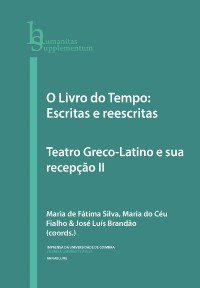Please use this identifier to cite or link to this item:
https://hdl.handle.net/10316.2/40929| DC Field | Value | Language |
|---|---|---|
| dc.contributor.author | Dimeo Álvarez, Carlos | |
| dc.date.accessioned | 2017-01-02T14:01:40Z | |
| dc.date.accessioned | 2020-09-08T12:50:06Z | - |
| dc.date.available | 2017-01-02T14:01:40Z | |
| dc.date.available | 2020-09-08T12:50:06Z | - |
| dc.date.issued | 2016 | - |
| dc.identifier.isbn | 978-989-26-1297-3 | |
| dc.identifier.isbn | 978-989-26-1298-0 (PDF) | |
| dc.identifier.uri | https://hdl.handle.net/10316.2/40929 | - |
| dc.description.abstract | The Hungarian philosopher Karl Kerényi ensures that every myth and its interpretation are “stigmatized” by a “special material” translation themselves. This materiality and corporeality while their structures, has been bequeathed over time in different narratives (the theatre was one of the “narratives” forms used for this). The special subject of myth and its background “historical” is what Kerényi locked in categories mythologiai - mythologemata. From these theoretical postulates, we want to study how and in what way have been interpreted and reinterpreted certain Greek myths in classical theatre and thus transferred as poetic materiality’s in Latin American playwriting. To do so in this presentation we will use the tragedies of the Venezuelan author Leon Febres-Cordero, El ultimo minotauro (1999), Clitemnestra (1999) and Penteo (2002). | eng |
| dc.description.abstract | El filósofo húngaro Karl Kerényi asegura que cada mito y su interpretación están “estigmatizados” por una “materia especial” de traducción de sí mismos. Esta materialidad y a la vez corporeidad de sus estructuras, ha sido legada a través del tiempo en diferentes tipos de narraciones (el teatro fue una de las formas “narrativas” más utilizadas para ello). La materia especial del mito y su fondo “histórico” es lo que Kerényi enclava en las categorías mythologiai – mythologemata. A partir de estos postulados teóricos, queremos estudiar cómo y de que manera se han interpretado y reinterpretado ciertos mitos griegos en el teatro clásico griego y así transferidos como materialidades poéticas en la dramaturgia latinoamericana. Para ello en esta presentación nos serviremos de las tragedias del autor venezolano León Ezequiel Febres-Cordero, El último minotauro (1999), Clitemnestra (1999) y Penteo (2002). | por |
| dc.language.iso | spa | - |
| dc.publisher | Imprensa da Universidade de Coimbra | por |
| dc.publisher | Annablume | por |
| dc.relation.ispartof | http://hdl.handle.net/10316.2/40906 | por |
| dc.rights | open access | - |
| dc.subject | Mytologiai-Mytologemata | eng |
| dc.subject | myth | eng |
| dc.subject | religion | eng |
| dc.subject | poetry | eng |
| dc.subject | Latin American theater | eng |
| dc.subject | classical ancient theater | eng |
| dc.subject | ancient Greek theater | eng |
| dc.subject | Mytologiai–Mytologemata | por |
| dc.subject | mito | por |
| dc.subject | religión | por |
| dc.subject | poesía | por |
| dc.subject | teatro latinoamericano | por |
| dc.subject | teatro clásico antiguo | por |
| dc.subject | teatro griego antiguo | por |
| dc.title | Mythologiai–Mythologemata: irredectubilidad del mito en la dramaturgia latinoamericana (Eestudio del teatro de León Febres-Cordero) | por |
| dc.title.alternative | Mythologiai–Mythologemata: irreductibility of the myth in Latin-American dramaturgy (Study of León Febres-Cordero’s theatre) | eng |
| dc.type | bookPart | por |
| uc.publication.collection | Humanitas Supplementum | por |
| uc.publication.firstPage | 305 | - |
| uc.publication.lastPage | 325 | - |
| uc.publication.location | Coimbra | por |
| dc.identifier.doi | 10.14195/978-989-26-1298-0_23 | - |
| uc.publication.section | Na América Latina | por |
| uc.publication.digCollection | PB | por |
| uc.publication.orderno | 45 | - |
| uc.publication.area | Artes e Humanidades | por |
| uc.publication.bookTitle | O livro do tempo: escritas e reescritas: teatro greco-latino e sua recepção II | - |
| uc.publication.manifest | https://dl.uc.pt/json/iiif/10316.2/40929/204998/manifest?manifest=/json/iiif/10316.2/40929/204998/manifest | - |
| uc.publication.thumbnail | https://dl.uc.pt/retrieve/11070812 | - |
| uc.publication.parentItemId | 54663 | - |
| uc.itemId | 69013 | - |
| item.fulltext | With Fulltext | - |
| item.grantfulltext | open | - |
| Appears in Collections: | O livro do tempo: escritas e reescritas: teatro greco-latino e sua recepção II | |
Files in This Item:
| File | Description | Size | Format | |
|---|---|---|---|---|
| mythologiai_mythologem_ata_irredectubilidad_del_mito_en_la_dramaturgialatinoamericana__estudio_del_teatro_de_leo_n_febres-cordero_.pdf | 673.59 kB | Adobe PDF |  |
Items in DSpace are protected by copyright, with all rights reserved, unless otherwise indicated.
